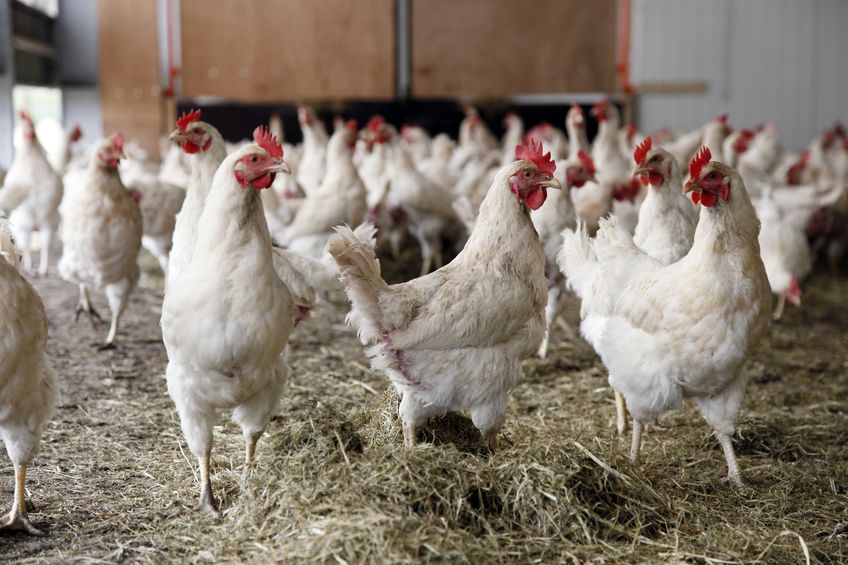
Larger farms are needed to keep the country supplied with chicken, according to the poultry industry.
The UK's poultry industry is becoming one of the largest in Europe, thanks to consumer preference for chicken.
Poultry now accounts for nearly half of all the meat bought in the UK, as British people eat an estimated 2.2 million chickens per day.
The industry contributes more than £3bn to the economy annually and directly employs more than 37,000 people.
Being a big economic player also means intensive poultry farms are on the rise. The number of poultry farms holding more than 40,000 birds increased by 27 percent during 2011 and 2017.
The Environment Agency defines poultry farms as "intensive" if they have capacity for housing at least 40,000 birds.
According to the chief executive of the British Poultry Council (BPC), the public shouldn't worry about the need for more larger farms.
“Larger farms are probably the most efficient way to go in terms of technology, resources, impact,” Richard Griffiths, chief executive of the British Poultry Council (BPC), told The Guardian.
“Indoor reared birds, on any size of farm, are in a controlled environment that provides good welfare. We operate under science-based legislation, the requirements of which are delivered by professional farmers and vets with high levels of training and experience.”
Antibiotic slash
The sector has also achieved an 82 percent reduction in the total use of antibiotics in the last six years.
The 2018 Antibiotic Stewardship Report highlights the progress made by the poultry meat sector, and its drive for improved bird health and welfare.
The sector achieved an 82% reduction in the total use of antibiotics in the last six years, and a 39.36% reduction in the total use of antibiotics in the last year.
The report also shows a 91% reduction in the use of Fluoroquinolones (a critically important antibiotic for human health) in the last six years.
BPC Chairman, John Reed applauded the results, and said the sector is delivering excellence in bird health by monitoring and reviewing on-farm management practices.
“Poultry is half of the meat eaten in the UK and we use less than 9.7% of the total antibiotics licensed for food producing animals,” Mr Reed said.
“We have successfully reduced our antibiotic use by 82% in the last six years and have stopped all preventative treatments as well as the use of colistin. The highest priority antibiotics that are critically important for humans are used only as a ‘last resort’.”
